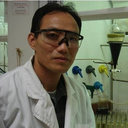Diterpenoid alkaloids of Aconitum laciniatum and mitigation of inflammation by 14-O-acetylneoline in a murine model of ulcerative colitis.
Sleutelwoorden
Abstract
Aconitum laciniatum is used in Bhutanese traditional medicine for treating various chronic infections and inflammatory conditions. We carried out in-depth isolation and characterization of the phytochemicals from the root component and determined the anti-inflammatory effects of the isolated compounds against chemically-induced colitis in mice. Five diterpenoid alkaloids - pseudaconitine, 14-veratroylpseudaconine, 14-O-acetylneoline, neoline, and senbusine A - were isolated from A. laciniatum for the first time. Two of the alkaloids were tested for anti-inflammatory properties in the TNBS-induced colitis model in mice. Various parameters were measured to assess pathology including weight loss, clinical and macroscopic scores, histological structure and IFN-γ production in the gut. Of the two alkaloids tested, 14-O-acetylneoline showed significant protection against different parameters of colitic inflammation. Compared to control mice that received TNBS alone, mice treated with 14-O-acetylneoline experienced significantly less weight loss and had significantly lower clinical scores, macroscopic pathology and grades of histological inflammation. Moreover, colonic IFN-γ mRNA levels were significantly reduced in mice that received 14-O-acetylneoline compared to control mice that received TNBS alone. This alkaloid is now considered a novel anti-colitis drug lead compound.


